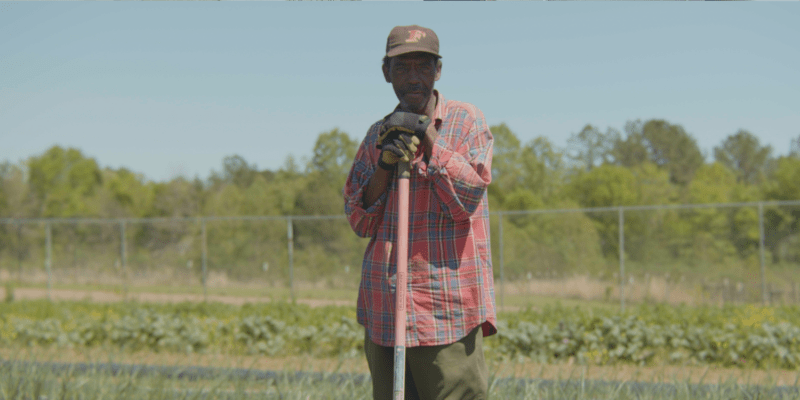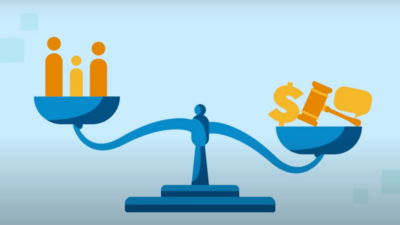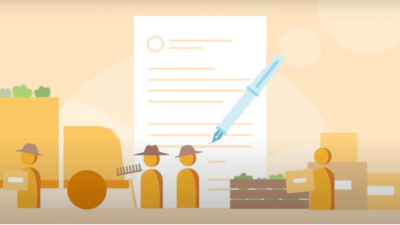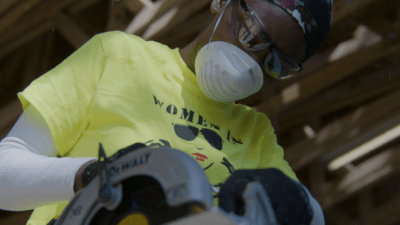The W.K. Kellogg Foundation (WKKF) has convened a cohort of influential investors (endowments, investment banks, corporations and individuals) for an experience called Reimagining Opportunities for Investment (ROI) in the South, an exploration of diverse investment opportunities in the U.S. South. This dynamic group of investors is coming together to mobilize a sustainable investment ecosystem for Black, Indigenous, Latino and other undercapitalized communities of color in the American South.
Following our features looking at the region as a whole, opportunities in Mississippi, and opportunities in New Orleans, this story focuses on a sector lens and looks at the opportunities in agriculture.
Land is the greatest natural asset in the U.S. South. The Mississippi Delta has some of the most fertile land in the world which produced the South’s economy in the 1800s. Yet as with so many of the South’s resources, land and water have been exploited in ways that create wealth for people and corporations outside the South and cause harm to communities, particularly communities of color, in the region.
For investors, there is a unique opportunity to invest in the region’s most valuable sector in ways that drive racial equity and create wealth in local communities. Yet this is a complex, rapidly changing sector and the dynamics of inequity in the South are deeply entrenched. This ROI in the South session examined some of those dynamics to yield insights for investors.
A history of exploitation
The history of agriculture in the South is one of land appropriated by wealthy White businessmen and farmers, dating back to the arrival of British colonists in the 1600s and the brutal erasure of Indigenous communities and the development of plantation slavery. Since emancipation, the patterns of stolen land and devastating racial discrimination have persisted. Today, large corporations own the majority of the land in the Southern Delta and the outputs largely go to other parts of the country – or to other nations. Due to a number of factors, the South has many food deserts and significant food insecurity, the latter compounded by the spate of natural disasters in recent years.
Discriminatory policies have limited access to capital for farmers and entrepreneurs of color across the food system, driving generational wealth gaps. Structural racism has disconnected communities from their cultural food traditions and agricultural history. As many as one million Black agricultural landowners have lost their land since the 1950s. Since the 1970s, the rate of Black farm owners has steadily decreased and the average age of owners has increased to 62 years old. As much as 60% of all Black-owned property in the Southeast is heir property, which is particularly vulnerable to land loss due to forced sales.
The investment landscape today
While there are long-standing patterns to disrupt, the agriculture sector in the South is also rife with market opportunities. The WKKF Mission Driven Investment (MDI) team declared that changing perceptions of the South from a deficit to an asset frame is crucial to the region attracting more and better capital. WKKF has been working to build more inclusive food systems across the South for decades, focused on building systems that provide people greater access to locally grown, healthy food through networks that create an equitable approach to production, distribution and consumption.
As California, America’s largest supplier of fruits and vegetables, continues to face the effects of climate change, researchers and scientists are pointing to agricultural investment in the Mississippi Delta as a comparable environment that will help diversify the supply chain. Investing to create sustainable and equitable agriculture practices regionally can combat growing food insecurity and ensure that local farmers, especially farmers of color, fully benefit from the market. Yet investors looking to achieve these goals need to bear in mind multiple dynamics relevant to the sector.
Timing is one: while some medium-term investment opportunities exist, the MDI team believes the deeper opportunity for change is in 30-year commitments. Buying land and managing it in a way that returns outputs to communities and creates jobs and entrepreneurship opportunities can fundamentally change the economic dynamics of the region. Climate change is another: in addition to planning for changing weather and acute climate events, there are many innovations in sustainable practices, such as hydroponics. Technology is a third: farming practices are changing rapidly as new technologies develop, and new tech skills are needed for a changing sector and workforce.
The ROI in the South conversation featured two experts working in very different parts of the agriculture ecosystem: Cindy Ayers Elliott, a former investment banker who returned to Mississippi to found Footprint Farms, the largest urban farm in the state; and Dave Chen, founder and CEO of Equilibrium Capital, a leading asset management firm that develops sustainable finance and active ESG strategies in agriculture. Watch the full conversation and read the key takeaways below.
- Businesses that yield wealth for farmers and communities often require support to scale. Historically, agriculture investments have been in one of two models: those buying and renting out land and those creating value-add opportunities. The former often means producing crops for commodities markets, such as soy or corn. This means less flexibility in how things are done and, from an investor’s point of view, limited opportunity for impact. In the second model, the farmer has a choice of crop and more options for shaping practices and accessing markets. The challenge of the latter model is how to aggregate enough scale to have supplier power. Models such as co-ops enable individual farmers to work together to reduce costs and access markets.
- Investing in agriculture that is sustainable for the future means looking beyond farmers. Many businesses and types of skilled labor make up a community and a market, including those adjacent to farming – engineering, water management, technology and services. Particularly as agriculture moves toward automation, a broader lens that looks at the various elements of agricultural communities can help investors identify more diverse, impactful opportunities.
- Land alone is not enough – especially as the climate continues to change. A critical national conversation is happening about how Black farmers have been systematically blocked from owning land. Yet simply investing in land ownership for Black farmers and other farmers of color is not enough. Making land economically feasible while building a food system that serves local communities requires a lot of resources – equipment, technology, access to capital, markets for the outputs and more. With the climate becoming increasingly volatile, adaptive equipment and technologies, which tend to be expensive, will become ever more necessary.
- Investors have a crucial role to play in building the pipeline of investments. Small businesses need capacity-building support for technology, education, skills and capital to scale and remain viable. For example, protected agriculture – the use of technology to modify the environment in which crops grow – is predicted to become a dominant model because of the diverse effects of climate change. Businesses need support to adopt such practices for long-term sustainability.
Related links
- Google Hero of Small Business, Dr. Cindy Ayers Elliot of Footprint Farms
- “This land was our land,” The Atlantic
- Growing the legacy: Stewarding a Black agrarian revival in the rural South, a report by the Southeastern African American Farmers’ Organic Network
- Untapped investment opportunity across the U.S. South, an Every Child Thrives feature story








Comments